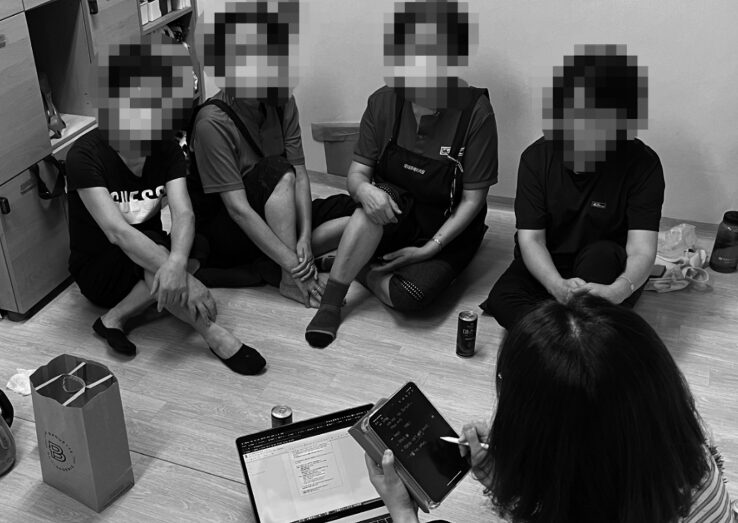| DURATION | 2022.09-2022.12 |
| ROLE | Ideation, Data Collection & Analysis |
| COLLABORATORS | Child & Family Experts |
| PARTICIPANTS | Graduate Students, Janitors |
BACKGROUND. Despite rising demand for sustainable campuses, the COVID-19 pandemic has further exacerbated campus waste issues and the conflicts they generate. However, studies exploring the perceptions and behaviors of students regarding waste disposal and how these differ from the needs of sanitation workers remain unexamined.
RESEARCH PURPOSE. To design interventions for sustainable behavior among students on campus, this study aimed to explore the perceptions and behaviors of key stakeholders, namely graduate students and janitors, regarding waste issues.
RESEARCH QUESTIONS. What are the perceptions of graduate students and sanitation workers regarding campus waste issues? What are the design solutions for addressing campus waste issues?
RESEARCH APPROACH. Focus group interviews were conducted with six graduate students and six campus sanitation workers. The collected data was analyzed using thematic analysis based on the Theory of Planned Behavior.
KEY INSIGHT. The study found differences in subjective norms, attitudes, and behaviors regarding waste issues between students and janitors. First, there was a disparity between janitors’ desire to address waste issues and graduate students’ waste-related behaviors. Second, graduate students were aware of their waste disposal behavior but lacked resources. Third, graduate students and sanitation workers had different evaluations of and expectations for waste issues. The findings suggest that design interventions should focus on bridging the gap between janitors and students regarding waste issues through communication.
IMPACT. This research garnered prestigious awards, placing 1st in the Yonsei Academic Support Program and 2nd in the Yonsei Graduate School Social Innovation Research Competition.
LESSONS LEARNED. Through this research, I gained an understanding of the difference between design research for insights and systematic research for knowledge. This experience revealed the power of research in uncovering the underlying causes of hidden problems and conflicts and suggesting impactful solutions. It even sparked a personal realization – conducting sustainability research can also lead to significant changes in my own behavior and lifestyle.
